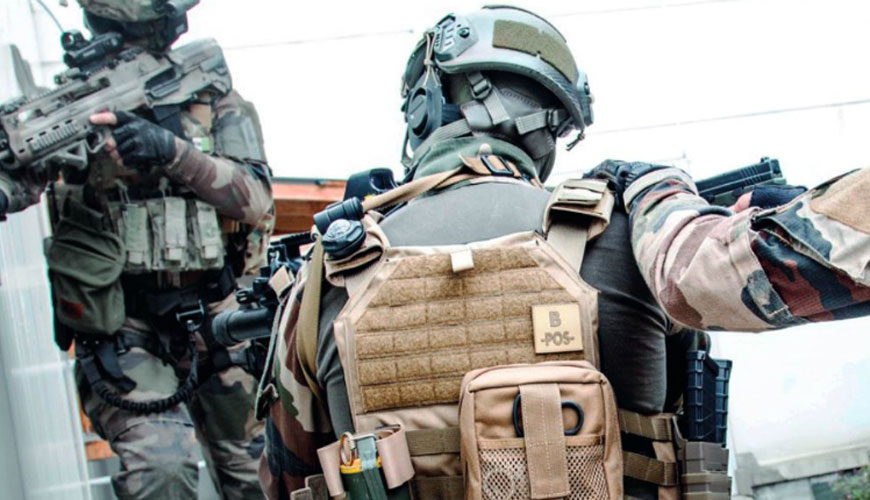

EUROLAB laboratory provides testing and compliance services within the scope of NIJ 0108.01 standard. This NIJ 0108.01 standard is applicable to all ballistic restraint materials (armor) intended to provide protection against gunfire, with the exception of police body armor and ballistic helmets, which are the subject of individual NIJ performance standards.

Many different types of armor are now available, ranging from those designed to protect against small-caliber handguns in ballistic resistance to those designed to protect against high-powered rifles.
Ballistic resistant materials are used to manufacture portable ballistic shields such as ballistic panels for use by a police officer, to provide ballistic protection for stationary structures such as control rooms or guard stations, and to provide ballistic protection for occupants of vehicles. Ballistic resistant materials used to manufacture armor include metals, ceramics, clear glass, fabrics, and fabric-reinforced plastics. They are used individually or in combination depending on the intended threat protection.
The ballistic threat posed by a projectile depends, among other things, on its composition, shape, caliber, mass and impact velocity. Due to the wide variety of cartridges and handloads available in a given caliber, armor to beat a standard test round may or may not defeat other loads of the same caliber.
For example, an armor that prevents penetration of a 357-magnum test round may or may not defeat a higher speed 357 Magnum round. Similarly, for the same strike rates, non-deforming or armor-piercing poses a significantly greater penetration threat than an equivalent lead-core projectile of the same caliber. The test munitions specified in this standard represent common threats to the law enforcement community.
The purpose of this standard is to specify minimum performance requirements and test methods for ballistic resistant protective materials. This standard replaces NIJ standard 1981 for Ballistic Resistant Protective Materials of December 0108.00. This revision adds threat level III-A and establishes threat level classifications for ballistic protection consistent with other NIJ standards.
Ballistic resistant protective materials covered by this standard are classified into five types according to their level of performance:
Type 1 (22 LR; 38 Special)
This armor provides protection against standard test rounds. In addition, 12 caliber No. It provides protection against lesser threats such as 4 bullet shots and most handgun bullets in 25 and 32 gauges.
Type II-A (Low Velocity 357 Magnum; 9mm)
This armor provides protection against standard test rounds. It also protects against lesser threats and type I threats such as 12 gauge 00 buckshot, 45 Auto., 38 Special – P and some other factory loads in caliber 357 Magnum and 9mm.
Type II (High Velocity 357 Magnum; 9 mm)
This armor provides protection against standard test rounds. It also protects against most other factory loads in the caliber 357 Magnum and 9mm, as well as threats specified under type I and type II.
Type III-A (44 Magnum; Submachine Gun 9mm)
This armor provides protection against standard test rounds. It also provides protection against most handgun threats, as well as threats specified under type I and type III.
Type III (High Power Rifle)
This armor provides protection against the standard test round. It also provides protection against threats specified in type I and type III, as well as smaller threats such as the 223 Remington (5.56 mm FMJ), 30 Carbine FMJ and 12 gauge rifle rounds.
Type IV (Armor Piercing Rifle)
This armor provides protection against the standard test round. It also provides at least one hit protection against the threats mentioned in sections up to type I and type III.
Special Type
A purchaser with a specific requirement for a level of protection other than one of the above standards should specify the exact test rounds to be used and indicate that this standard will apply in all other respects.
You can contact EUROLAB Laboratory to learn how our NIJ 0108.01 services can help your organization.
To get an appointment, to get more detailed information or to request an evaluation, you can ask us to fill in our form and reach you.